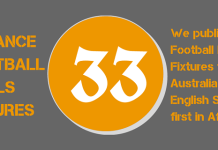The Nigerian Civil Aviation Authority (NCAA) has notified air travellers that it has directed Air Traffic Controllers (ATC) to temporarily close the airspace whenever there is indication of thunderstorm or microburst that may impinge the safety of flights.
The current practice is that ATC notifies pilots of bad weather conditions and allows the pilots and airlines to use their discretion to either cancel or suspend flights, a trend that has led to crashes that resulted from the indiscretion on the part of pilots and their airlines.
But with the directive by NCAA to ATC to close airspace on account of bad weather, airlines won’t have options than to suspend or cancel flights.
The regulatory authority has also advised pilots and airline operators to exercise caution during flight operations in hazardous weather conditions as the rainy season sets in.
This warning was contained in an advisory circular issued yesterday to airline operators and signed by the Director General of NCAA, Capt. Muhtar Usman.
In a statement signed by its spokesman, Sam Adurogboye, NCAA said the circular was sequel to the Seasonal Rainfall Prediction (SRP) released for the year 2019 by the Nigerian Meteorological Agency (NIMET).
Adurogboye said NIMET has predicted March/April and May/June 2019 as the commencement of rainy season in the Southern and Northern parts of Nigeria, which is usually accompanied with turbulence.
This is in addition to microburst, low level wind shear and other events that could affect the safety of flight operations.
“With this information, it is expected that Air Traffic Controllers may temporarily close the airspace when there are adverse weather conditions. Flight Crews/Operators and ATCs shall ensure strict adherence to aerodrome operating minima in line with standard and recommend practices.”
“In addition, all pilots are therefore obliged to exercise maximum restraint whenever severe weather condition is observed or forecast by NIMET,” NCAA said.
NCAA also said that for the purpose of safe flight operations, pilots/flight crew members should obtain adequate departure, en route and destination weather information and briefing from NIMET Aerodrome Meteorological Offices situated in all the airports prior to flight operations.
“Operators are therefore required to play a key role in ensuring adequate measures are put in place to lessen the effects of the attendant flight delays and cancellations on their passengers as occasioned by this severe weather conditions in accordance with Part 19 of the Nigeria Civil Aviation Regulations 2015.
“While the authority urges all passengers to exercise patience and understanding during this period as their safety is of utmost importance, stakeholders should ensure strict compliance to safety regulations as violations would be viewed seriously,” NCAA said.
Source: THISDAY













